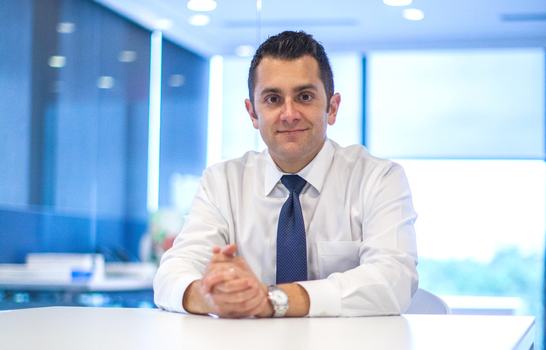
Photo Credit: Levin Law P.A.
National securities and investment fraud law firm Levin Law, P.A. (“Levin Law”) has been investigating brokerage firms that recommended and sold Northstar Financial Services (Bermuda) Ltd. investments. In 2020, Northstar Financial Services filed for bankruptcy and is currently in provisional liquidation.
Soon after Northstar’s acquisition by Global Bankers, Northstar fund shares declined in value following allegations of misconduct and a subsequent criminal conviction of Greg Lindberg, Global Bankers’ founder and chairman. In March 2020, Lindberg was convicted on federal charges of attempted bribery and corruption. Following Lindberg’s conviction, investors have suffered losses due to Northstar’s collapse.
Advertised as purportedly conservative investments comparable to a bank certificate of deposit, financial advisors from SunTrust and other broker-dealers are alleged to have recommended Northstar to investors in Florida, South America, Japan, Indonesia, and other countries. Court documents from Bermuda indicated over $70 million was owed to investors as of September 2020 but Northstar reported only $8 million in assets.
The following Banks or Brokerages recommended or sold Northstar investments:
- Cetera Investment Services
- J.P. Morgan Securities
- Ocean Financial Services
- Bankoh Investment Services (a.k.a Truist Investment Services)
- Hancock Whitney Investment Services
- Sun Tristens Investment Services
- Unionbanc Investment Services
Brian Levin and Haute Lawyer recently discussed some of the many interesting aspects of the unsuitable Northstar recommendations, which led to millions in losses.
Haute Lawyer: Regarding the Bermuda Northstar cases, were you particularly surprised, or is this something that occurs more frequently than folks would assume?
Brian Levin: This happens way more often than people would assume. I think to investors who did business with Northstar, this came as a complete surprise. The Northstar products were sold to investors as conservative ways to hold on and preserve their assets and make a little bit of money. They were not sold as being risky, so it’s not like people are taking long shots, hoping to triple or double their money in order to sell it as conservative assets. The reality was that Northstar was a random, not particularly well-known Bermuda financial institution. So, the fact that some offshore, relatively small financial institution runs into financial trouble is not surprising to people such as myself who might be securities lawyers or bankers who are really paying attention to what their clients are invested in.
HL: What would be the main point you would like to express when sharing this case with a client?
BL: Don’t invest in random things you don’t understand. On the one hand, this is being sold by some of the largest financial institutions. The cases we have thus far are all against SunTrust, Bankoh and we are also looking into cases involving Cetera. My understanding is that JP Morgan sold this, Raymond James sold this… so you have had some really large, internationally-recognized firms selling this, and I think a lot of investors (appropriately so) assume that these large financial institutions are looking out for our best interest and have conducted their due diligence but that does not always seem to be a fair assumption.
So when you are receiving a pitch to invest a significant amount of money, make sure you really understand what you’re investing in and make sure it makes sense to you. If it doesn’t make sense to you rationally and you cannot understand the level of risk, it probably should not be something to invest in.
Warren Buffett always recommends to invest in companies that you use, know and understand. I’m not saying that would be applicable 100% of the time, but if you were aware of this advice, you would probably not invest in some random Bermuda bank.
HL: Is there anything else pertinent to this case that you believe clients should keep in mind?
BL: Make sure that any financial institution they are involved with is really conducting due diligence on a product that big. For example, the Northstar cases we have received thus far, at Levin Law, involve instances where the financial institutions did not conduct adequate due diligence on the products. The problem here is that, when asking about this issue in particular, the answer you will typically get is “we did a ton of research and we are really comfortable with that,” which is really not all that meaningful.
The other lesson here, which is something that may not be applicable to all investors, is don’t put too much of your money in any one asset or any specific investment. We have clients who have been recommended to put 90% of their money into a trusted financial institution. I mean, the risk becomes so much greater when you put such a significant percentage of your assets into an investment like this.
Let’s say you have one million dollars and you improperly invest $50 thousand into a product. It would be terrible but it would not be as devastating as a lot of investors who put in 50% to 70% of their money into a product. These losses become increasingly difficult to recover from, particularly when you are further along in age and this stands for a big chunk of your savings.
HL: If a similar case were to hypothetically sprout up in the next six months, would you be surprised?
BL: No, not at all. Cases like these are sprouting up all the time. We see this often in times of great market volatility because when the market is down, cases like these blow up far more frequently.
Back in 2008, we were getting calls about companies failing left and right at times. It was because the companies failed and it wasn’t anyone’s fault but other times, instances of either fraud or mismanagement were occurring every week. In a rising market, you just don’t see it as often.
We still see it all the time and we prosecute it in various cases. We continue to prosecute cases involving a company called GPB Capital. Dozens of brokerage firms across the country sold en mass to customers, and it was a different pattern from the Northstar cases, but the outcome was the same: investors lost they money invested in the product. It wasn’t a surprise to us, it’s just par for the course.
HL: Are there any parting thoughts regarding the Northstar cases you would like to share?
BL: Investors have options. I think one mistake investors make is when they look at a case like this, for example, they say: ‘Oh, I lost money on an investment, investments are risky and there’s nothing for me here.’ But that’s just not the case.
Financial institutions have duties to their customers and one of those duties is to over-concentrate their investment in any one asset or type of asset. People have recourse against their financial institutions for making what is really grossly negligent investment recommendations. That said, they also have recourse because the firms, in most cases, should not have approved this for sale for their customers. In this case, they have what we refer to as negligent due diligence.
I think the takeaway here, apart from what we have discussed previously, is to avoid assuming that just because you lost money, you are deprived of recourse. I am not referring to suing if the stock goes down but I am talking about when there is something properly wrong.
To learn more about the Northstar cases, as well as Brian Levin’s practice, head to the link below:


















